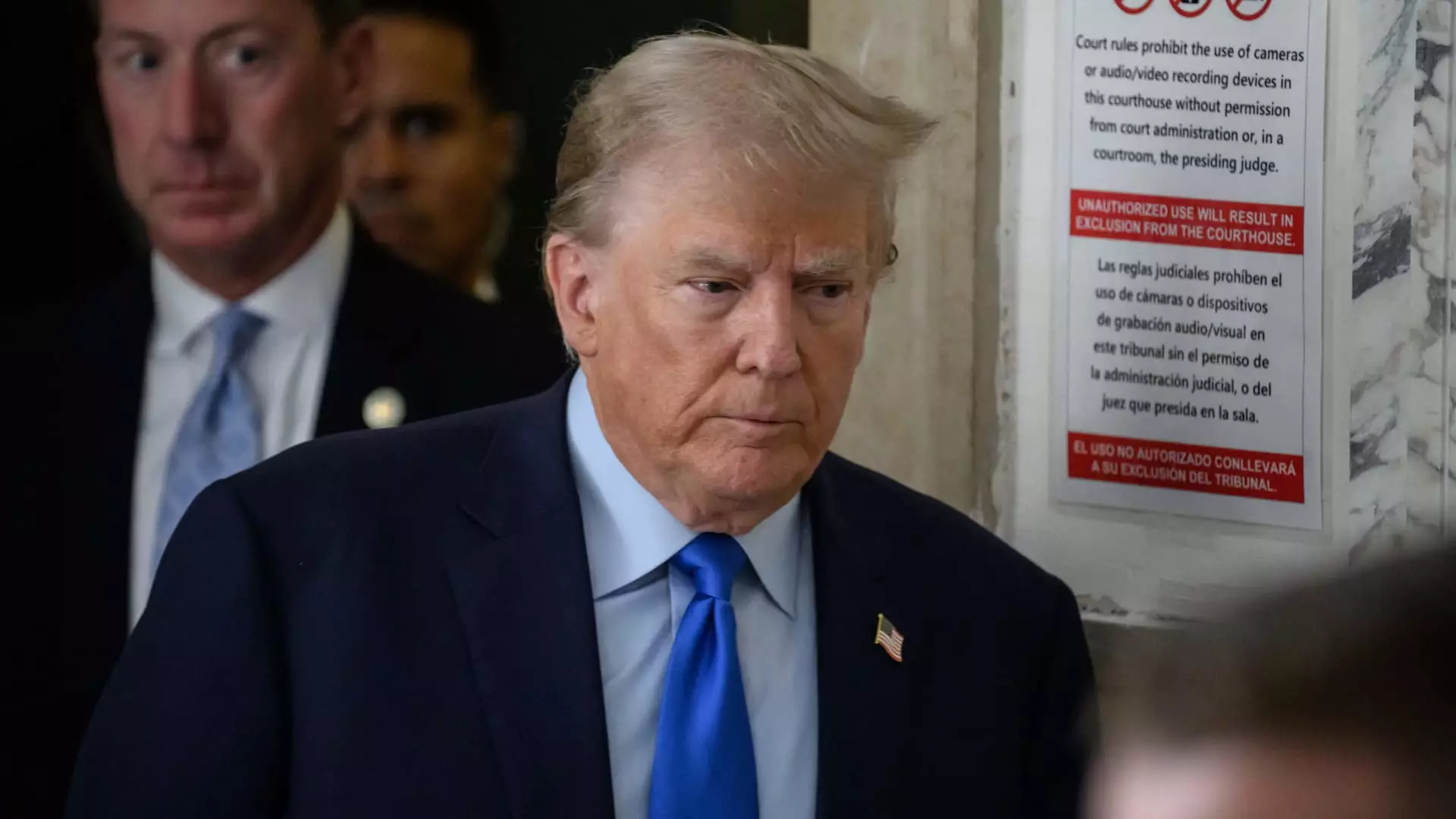Donald Trump’s decision to post a $100 million bond to pause enforcement of the civil fraud judgment against him and his co-defendants raises significant questions about the feasibility of their legal strategy. The fact that this amount is just a fraction of the total judgment that they have been ordered to pay casts doubt on the effectiveness of this approach. By choosing to post only a partial undertaking of the judgment amount, Trump and his legal team are essentially admitting that they do not have sufficient liquid assets to satisfy the judgment. This raises concerns about their ability to fully comply with the court’s ruling.
The lack of transparency surrounding the source of funds for the $100 million bond is also troubling. Trump’s attorneys mentioned that a surety bond agency will often set the bond amount at 120% of the judgment to account for interest and appeal costs, potentially increasing the bond to over $550 million. However, they failed to provide clear information on how they plan to secure this bond and whether they have the necessary assets to do so. This lack of transparency only adds to the skepticism surrounding Trump’s legal defense.
The implications of Trump’s decision to post a partial bond are concerning, especially considering the punitive nature of the judgment against him. Judge Arthur Engoron’s ruling found Trump and his co-defendants liable for submitting fraudulent information on financial statements, resulting in a total judgment of $464.6 million in fines and interest. Trump’s share of the judgment alone exceeds $454 million, indicating the seriousness of the allegations against him. The ongoing accrual of interest at a rate of 9% annually further compounds Trump’s financial obligations, making it imperative for him to address the judgment in a comprehensive manner.
Trump’s attempt to secure a stay of the judgment through a $100 million bond presents risks and consequences that cannot be ignored. The fact that this amount falls significantly short of the total judgment raises doubts about the adequacy of the bond to cover potential costs and liabilities. Additionally, the restriction imposed on Trump from running a business in New York for three years and applying for loans from state-registered financial institutions during that period further complicates the situation. Without a comprehensive legal strategy and clear evidence of their ability to fulfill the judgment, Trump and his co-defendants face substantial risks and potential legal consequences.
Donald Trump’s decision to post a $100 million bond to pause enforcement of the civil fraud judgment against him raises significant concerns about the feasibility and effectiveness of his legal defense. The lack of transparency surrounding the bond, coupled with the punitive nature of the judgment and ongoing interest accrual, highlights the risks and challenges that Trump and his co-defendants must address. It remains to be seen whether this strategy will be sufficient to secure a stay of the judgment or if it will ultimately fall short of addressing the legal ramifications they face.


Leave a Reply